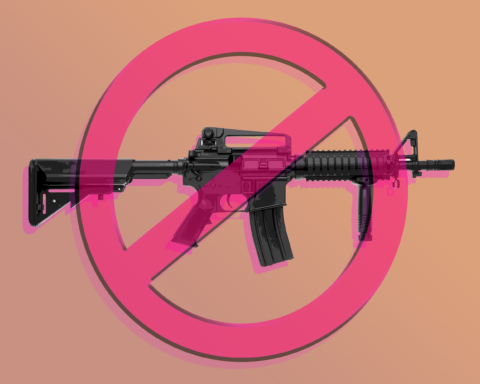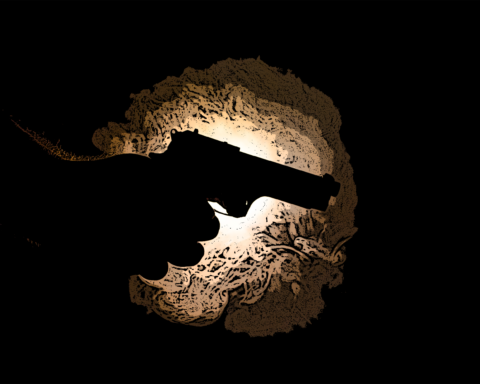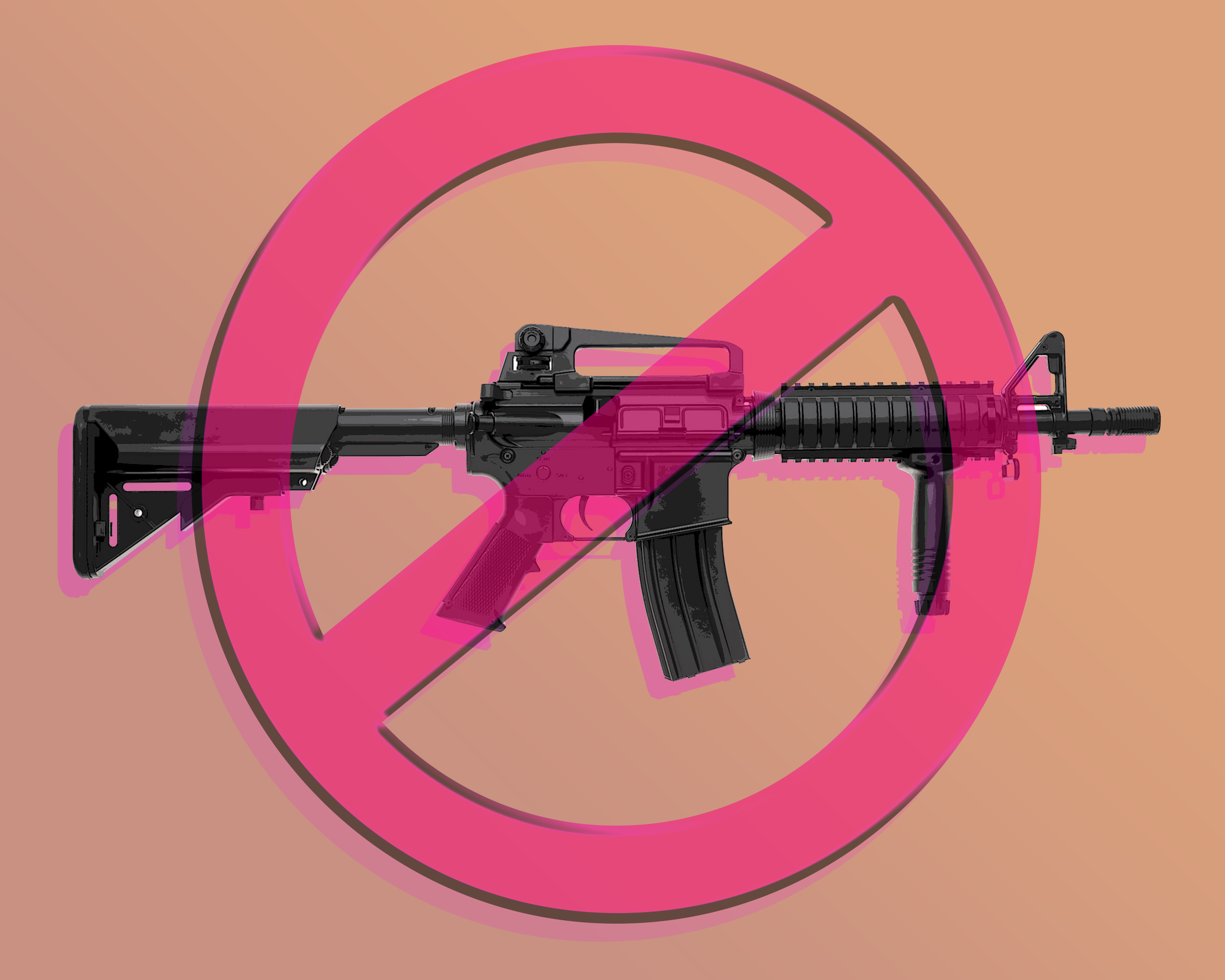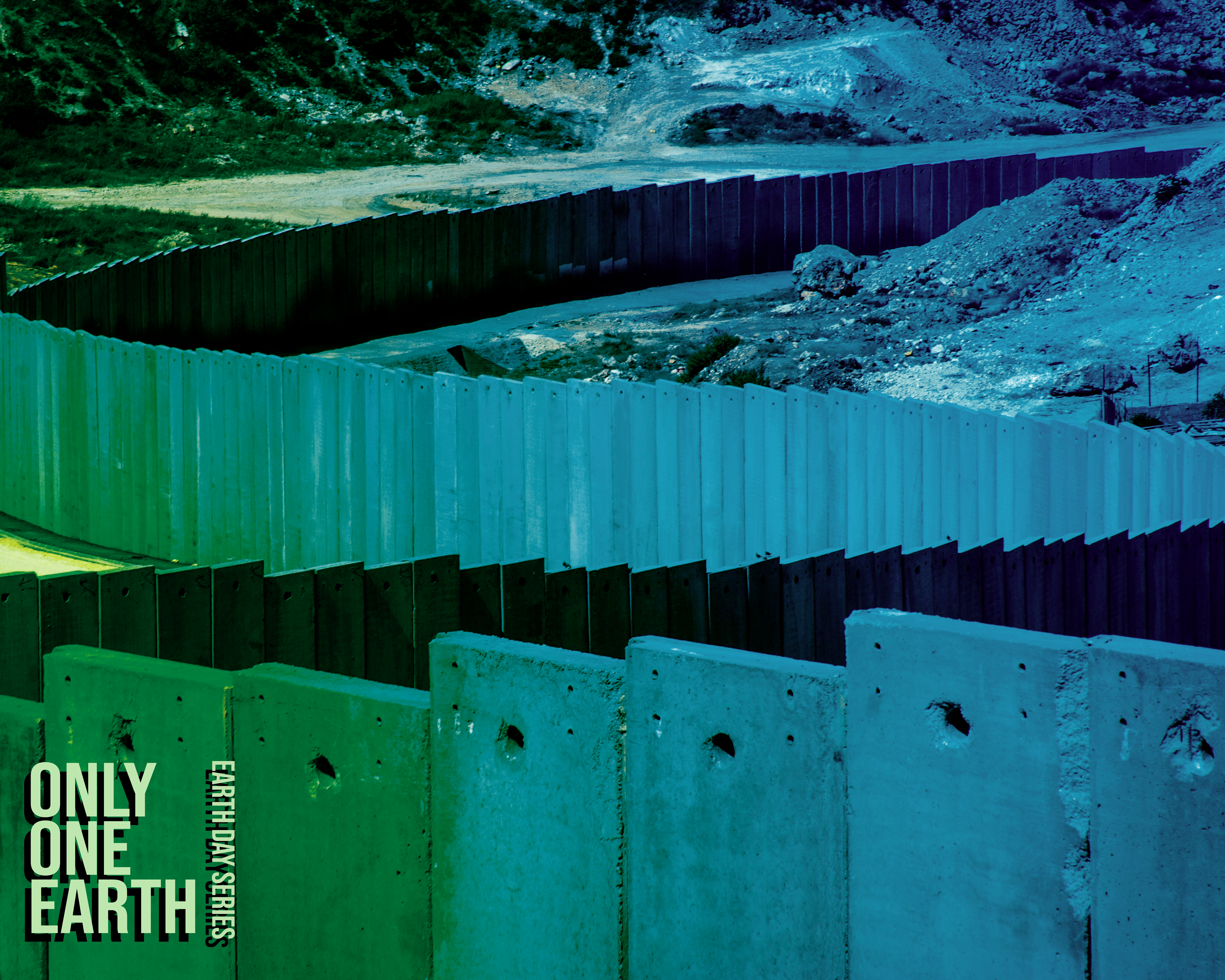In the wake of mass shooting tragedies that have become all too frequent in our country, a familiar echo emerges — thoughts and prayers. We see them directed toward the grieving families of victims, and the survivors who will live with the impact of gun violence for the rest of their lives. We see communities offer them up at vigils as people seek solace in one another. And, more cynically, we hear gun industry-backed lawmakers respond with thoughts and prayers again and again after horrific acts of violence — while doing nothing to stop it.
Prayer is powerful, but it is not enough to address a public health crisis that kills 120 Americans each day and wounds more than 200 others. As people of faith, we know the instinct to turn toward God for guidance in moments of crisis like these — it’s a way to ground ourselves when faced with overwhelming grief and helplessness, and it’s a balm for the devastation we see in our world. We ask God to help us make sense of things and give us the tools to respond courageously. True faith calls us to action.
Prayer is powerful, but it is not enough to address a public health crisis that kills 120 Americans each day and wounds more than 200 others.
After all, as James says in the Bible, “faith without works is dead” — and that’s why leaders from diverse faith communities across the country have joined the gun violence prevention movement to unite people around a shared vision of peace.
Faith leaders in Louisville are wrapping their arms around their communities after the tragic mass shooting at Old National Bank on Monday. In the wake of the horrific mass shooting at The Covenant School in Nashville, faith leaders have spoken out forcefully in favor of stronger gun laws in Tennessee and nationwide. After the shooting at Robb Elementary School in Uvalde last year, more than 700 faith leaders from 44 states signed a letter to the Senate demanding action — and many joined rallies outside the Capitol that kept the pressure on lawmakers. It worked: together, we passed the most significant federal gun safety legislation in a generation, the Bipartisan Safer Communities Act.
But while mass shootings rightfully make headlines, they represent less than 1 percent of gun deaths in our country. And faith leaders are often on the front lines when people are impacted by the types of shooting tragedies that don’t always make the news: daily gun violence that disproportionately impacts Black and Brown Americans, firearm suicides, police violence and unintentional shootings by children.
As deaths and injuries from all of these types of gun violence soar in our country, faith leaders find themselves called to confront this crisis in so many ways. Across the country, they often step in to de-escalate conflicts in neighborhoods, either directly or by supporting life-saving community violence intervention programs. Clergy members counsel survivors and victims’ families in the hospital and beyond. And very often, faith leaders are the ones who accompany those directly impacted on their healing journeys long after others have forgotten the tragedy. So while faith leaders are often the ones to whom people ask Why did God let this happen?, they also play a vital role in fighting to make sure it can’t happen again.
As deaths and injuries from all of these types of gun violence soar in our country, faith leaders find themselves called to confront this crisis in so many ways.
I’m honored to work alongside faith leaders from so many denominations as part of Everytown for Gun Safety’s Interfaith Advisory Council. And we need all of their voices in this fight, now more than ever, because it will take all of us standing up and speaking out to end this epidemic.
Faith leaders’ voices carry a special weight: every religion preaches non-violence, and they are natural ambassadors of peace. Faith leaders serve as credible messengers in their communities with moral authority. They are the ones to whom people turn to celebrate life’s joys and grieve its sorrows. And they are also some of the most effective community organizers, bringing people from diverse walks of life together with the shared goal of making the world a better place.
Faith leaders’ voices carry a special weight: every religion preaches non-violence, and they are natural ambassadors of peace.
Faith has always played an important role in my life, and I rely on it every day to guide me and lift me up in moments when this work gets tough. Like many others, I joined the fight against gun violence because I wanted to help fix an urgent issue that could make a difference for many. I am also the mother of four children, and I feel an obligation to ensure they — and every child in America — can grow up without the fear of gun violence.
To me, living your faith means asking every day what you can do to contribute positively to the human condition so that we might all prosper. Whose suffering could you alleviate with your actions? Who can you comfort with your words? How can you make this world a little bit better than it was yesterday? That is faith in action. That is where real, lasting and life-saving change begins — the kind of change we so desperately need.
To me, living your faith means asking every day what you can do to contribute positively to the human condition so that we might all prosper.
That’s why it’s on all of us to demand that thoughts and prayers are always accompanied by policies and change. We need strong gun safety laws — including background checks on all gun sales and Extreme Risk laws that ensure that we can keep guns out of the hands of people who pose a danger to themselves and others. We need our lawmakers to act with the same courage gun violence survivors show every single day to pass these laws as quickly as possible. And we need to continue to invest in the people doing life-saving gun violence prevention and intervention work on the ground.
It’s not enough to pray about it — we need to act with urgency. We can each live our faith by demanding action we know will save lives. As the hymn goes, “Let there be peace on Earth, and let it begin with me.” Only by joining together can we create a future free of gun violence and rich with peace. Will you join us?

Angela Ferrell-Zabala joined Everytown for Gun Safety in 2019 and currently serves as Senior Vice President of Movement Building. In this role, she is responsible for both leading and growing the largest grassroots network in the gun violence prevention space with Moms Demand Action. She also oversees our external engagement and programmatic work which consists of cultural engagement, corporate engagement, national partnerships and national programs. Additionally, she is helping to lead the way on building and sustaining collaborative relationships with diverse and representative communities and individuals through our constituency based strategic engagement. In her former role as National Director of Strategic Partnerships for Planned Parenthood Federation of America and the Planned Parenthood Action Fund, Angela ensured strategic alignment across the progressive movement with particular focus on issue areas that are not historically or wholly centered in Planned Parenthood’s strategies–this included immigrant rights, economic justice, racial justice, voting rights and gun violence prevention. Angela joined Planned Parenthood in 2014 as the Director of African American Leadership and Engagement, where she worked to make sure that the real, lived experiences and needs of communities of color – particularly black women and girls – were centered in the strategies that the organization moved forward. Before this, Angela worked for the Religious Coalition for Reproductive Choice (RCRC) as the Director of Field Operations, where her chief responsibilities were grassroots organizing, state strategy, and capacity building within progressive faith communities. Before joining the team at RCRC, Angela worked for Community Change where she played an integral role in immigrant youth leadership projects, as well as the Community Voting Project. She is passionate about movement building, and empowering the next generation of leaders. With a background in political and social sciences, Angela began her journey into the world of social justice through many volunteer opportunities with particular interest in racial justice, women’s rights, civil rights, LGBTQ communities, immigration, and education.






Unbound Social